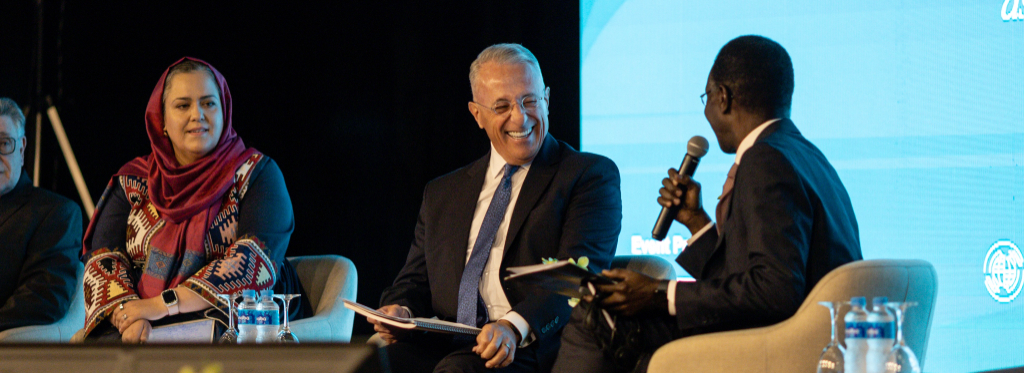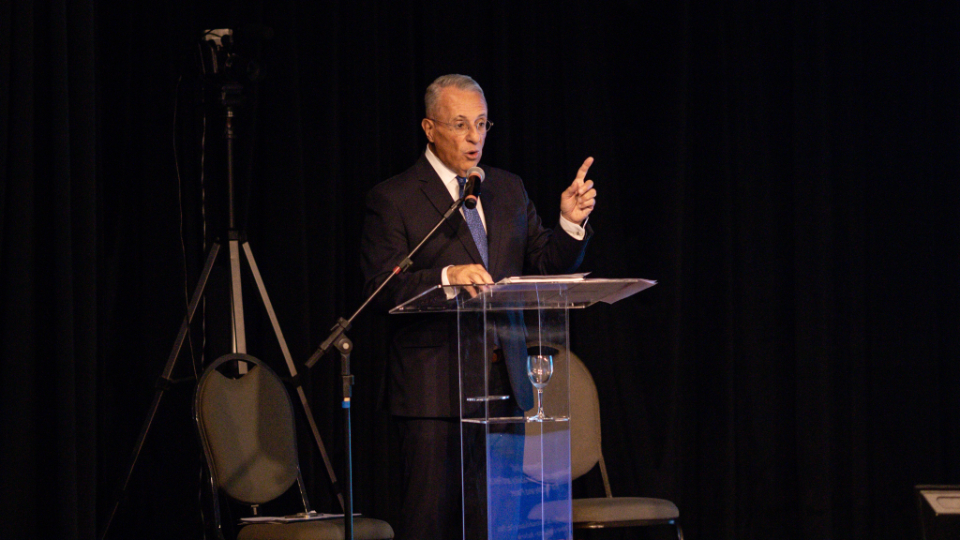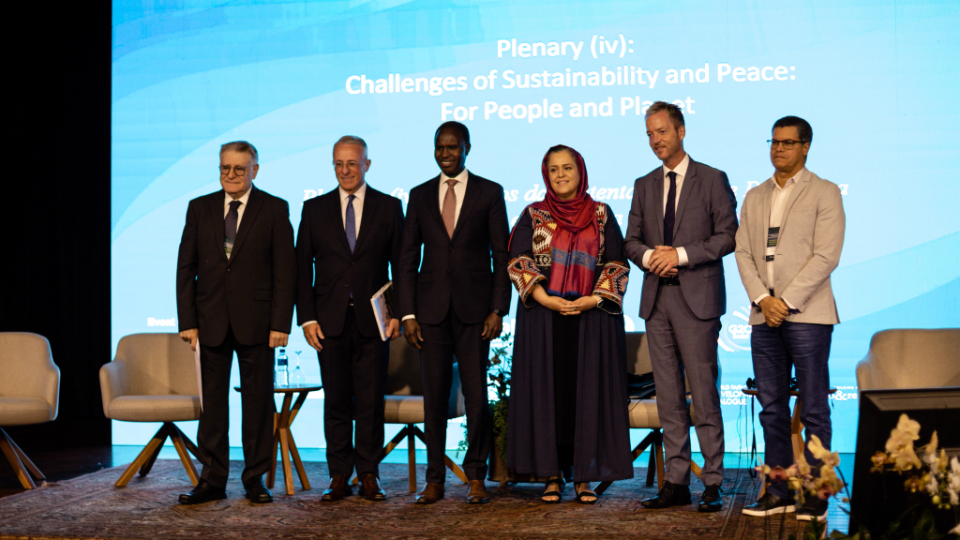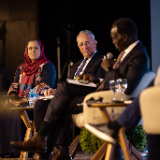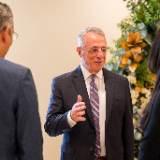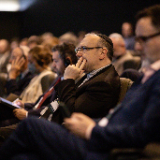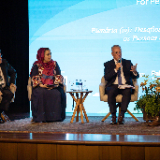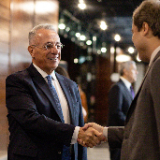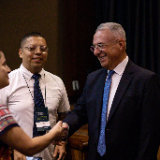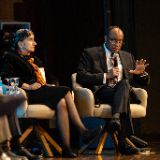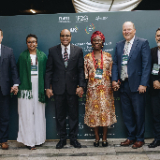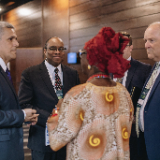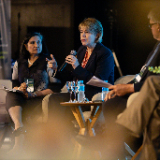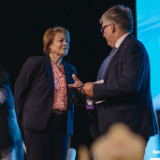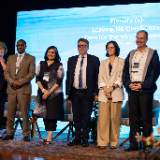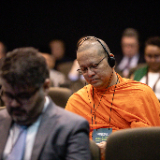Speaking to world leaders gathered at the G20 Interfaith Forum in Brasília on Wednesday, August 21, 2024, Elder Ulisses Soares of the Quorum of the Twelve Apostles emphasized the unique power of faith to bring people together, break down barriers and promote peace.
The Brazil native drew on a metaphor from a New York Times writer. Mangroves filter toxins and provide stability in nature around tropical coastlines. In a similar way, faith communities can serve as society’s moral filters and stabilizers.
If people of faith carry out their unique mission in the world, Elder Soares said, then we can have faith and hope that “people, communities and countries can overcome polarization, the lack of civility and roadblocks burdening our future that has been affecting the world.”
| Panel participants, including Elder Ulisses Soares of the Quorum of the Twelve Apostles of The Church of Jesus Christ of Latter-day Saints (second from left), pose for a photograph on August 21, 2024, in Brasília, Brazil. | 4 / 17 |
“It takes extraordinary women and great men to promote the societal moral mangroves the people of the world desperately need,” the Apostle added.
Elder Soares also spoke about the role of religious communities in creating safe spaces for the vulnerable and the rising generation, helping them grow and prepare to contribute to the future. He said faith-based organizations should not be banished from the public square but should actively engage in crucial conversations and promote understanding and cooperation.
Elder Soares concluded his address with a call to action for people of faith to occupy their space in communities and countries, promoting societal moral mangroves that filter out toxic attitudes and declining morals. He expressed hope that through collective efforts, future generations can be protected from forces of addiction, isolation and moral relativism.
“Religious freedom, people of faith, and institutions can provide a filter from the toxic attitudes and declining morals in society,” Elder Soares stated. “As a collective moral mangrove, we can protect future generations from forces of addiction, isolation, narcissism and moral relativism that could consume them. A moral mangrove, and all the people who are part of it, are crucial to the fabric that strengthens and holds our society together and gives us faith in the future of the world.”
Elder Ahmad S. Corbitt of the Seventy also spoke at the conference. He praised the mangrove metaphor shared by Elder Soares.
“This system of roots comes together, helps each other, keeps the environment together and healthy. And if it ever fractures or separates, so would go the environment as well,” Elder Corbitt said. “We very much believe that about our people, about religions generally and about believers and nonbelievers. If we can come together around specific principles, the basics, the ideals, the constitutional ideals that we all seek that are self-evident — life, liberty, the pursuit of happiness, peace, unity — we will be effective and powerful.”
Another Church representative at the global gathering was Sharon Eubank, the faith’s director of Humanitarian Services. She shared important thoughts on how we all need each other.
“We are all interconnected,” Eubank said. “[Faith communities have] been teaching the moral imperative that we must love God by loving each other in the family for millennia. [The Church of Jesus Christ has] made a commitment that we cannot do this on our own. We just recognize that on our own we can get to a certain level. So, our commitment is to fund coalitions. It’s why we’re active here. It’s why we want to bring groups together who have given evidence that they can help the most vulnerable and fund those coalitions.”
The Church of Jesus Christ of Latter-day Saints has participated in previous G20 gatherings. See, for example, summaries from Italy (2021), a virtual gathering (2020), Japan (2019) and Argentina (2018).
